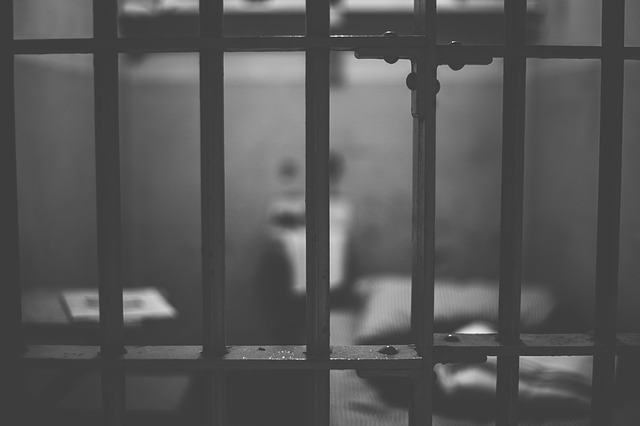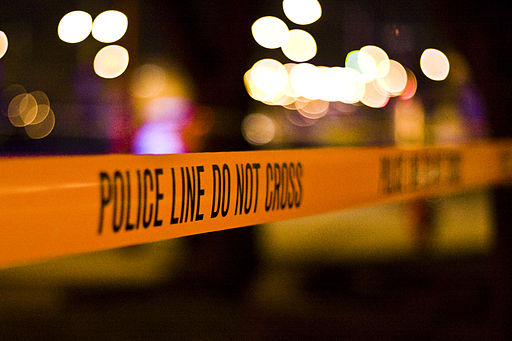Contributed Post
Everybody looks for something different out of a career. Some people are concerned first and foremost about their salary, they’re not bothered what they do as long as they get paid well and they use that money to pursue life goals outside of work. But other people want to spend their time doing something fulfilling that gives back to the community. Becoming a police officer is one of the best ways to do that because you’re on the front lines, protecting your local community on a daily basis. But that career isn’t for everybody.
There are a lot of reasons that people don’t like the idea of joining the police force. The risks involved are an obvious factor because, in some situations, you’re putting your life on the line and some people just aren’t prepared to do that. In recent years, there has been a lot of political turmoil around the police and you might not want to get involved with that. Joining the police also requires you to pass a lot of physical exams and if you’ve had an injury in the past, you may not be up to it. In some cases, a long term injury makes you ineligible to apply in the first place. If you fit into any of those categories, you might think that it’s time to give up on your dream of working in criminal justice, but policing is only one small part of that. There are all sorts of other ways that you can serve the local community and keep people safe. These are some of the best criminal justice jobs for civilians.
Parole Officers
Catching criminals and putting them in prison is an important part of the criminal justice system, but it’s even more important to make sure that they can reintegrate into society properly without reoffending. If you don’t take steps to help people turn their lives around then you’re wasting a load of money pursuing the same people over and over and you can’t manage crime rates effectively. That’s why parole officers are such an important part of the process. They will visit an offender in the months following their release to help them find a job and make sure that they’re not falling in with other people that might encourage them to re-offend.
Probation officers perform a similar role for offenders that were given probation rather than prison time right away. This is such an important step because this is the turning point for a lot of these people. Without support to help them turn their lives around, they may end up committing more serious crimes and end up being arrested again. If you want to pursue a career as a parole or probation officer, you’ll need some training. You can do an online criminology BA course that teaches you the basics of police work as well as the psychology of crime and how to manage mental health issues to some degree. Being able to understand the thought processes and circumstances that lead people to commit crimes in the first place will help you to support people after their release and ensure that they don’t go down the wrong path again.
Correctional Officers
Prisons can be a very dangerous environment, especially high security ones with a lot of serious criminals in there. That means somebody needs to manage the prisons and make sure that things don’t get out of control. That’s where correctional officers come in. It’ll be up to you to make sure that all of the inmates abide by the rules and follow their schedule. You’ll also have to deal with any disputes that may arise. There are still risks involved with being a correctional officer and you may have to deal with physical threats from time to time. However, it’s a lot safer than being a police officer out on the streets because you’re in a controlled environment.
A correctional officer’s primary role is to maintain control of the prison but that’s only part of the job. Parole officers will offer counsel and support people through their rehabilitation after they’re released, but when they’re inside, a correctional officer takes on a lot of those responsibilities. You’ll get to know the inmates well and those that want to improve themselves will come to you for help. In that sense, it can be an incredibly rewarding job that gives you the opportunity to make a real difference.
If you want to be a correctional officer, there are a few different options. You may need to get a relevant bachelor’s degree if you want to work at a federal level or if you hope to eventually get promoted to a senior position like a prison warden. However, state prisons will often accept 3 years of experience in a different position in a correctional facility instead. After that, you’ll need to pass the necessary physical tests and entrance exams before you can start applying for positions.
Paralegal
The court system is another important step in the criminal justice process but becoming a lawyer might not be right for you. Once you’ve completed your law degree, you’ll have to pass a whole host of other exams and it’s a long and expensive process. But you can still contribute to the legal system in another way by becoming a paralegal. Paralegals support lawyers when they’re building their case by conducting research, gathering evidence, organizing witnesses and filing all of the necessary legal paperwork. They work behind the scenes but it’s often the hard work of the paralegals that makes all of the difference in a case.
You still need training to become a paralegal but, compared to becoming a fully fledged lawyer, it’s not as difficult. You can do a 4 year degree to train as a paralegal or if you’ve already got a degree of some kind, you can apply to get a paralegal certificate which should only take you a couple of months.
Intelligence Analyst
Before any of these other roles come into play, somebody needs to catch the criminals first. A lot of basic crimes will be handled by police officers on the street but some bigger crimes like money laundering, drug dealing or even terrorism are a lot harder to combat. They involve large networks of criminals that need to be tracked down and dismantle. In order to do that, law enforcement officials must gather intelligence through surveillance and informants. That’s a huge amount of intelligence and piecing together all of that information to build a complete picture of exactly who is involved in criminal activity takes a lot of work. That’s why intelligence analysts are such a vital part of the investigative process. You’ll need good analytical and organizational skills but you’ll need a lot of training and experience as well. First off, you need to get a degree in something like intelligence, political science or security. Beyond that, you need to get some relevant experience. Often, intelligence officers are people that have served in the military for some time but that’s not the only route. There are also some internship programs available for people that have already completed their degree to help you get some more experience in the field before you start applying for permanent positions.
If you are going to apply for a job as an intelligence analyst, you need to be prepared for a background check. Security is so important in this field so they’re incredibly selective about who they take on. If you’re not willing to go through that process, this isn’t the right career for you.
Crime Scene Investigator
Modern policing relies heavily on forensic evidence when investigating crimes so crime scene investigators have a vital role to play. If you think that it’s going to be like something that you’ve seen on a TV show, you’re probably going to be a bit disappointed. Some of the things you see on TV and in movies might be accurate but often, it’s not as glamorous. It’ll be your job to go through a crime scene with a fine tooth comb collecting DNA samples and fingerprints etc. to give investigators more information on who might have been there. You’ll work in collaboration with different people from all sorts areas of policing when you’re investigating a case. A lot of your work will feature heavily in the court case as well so you’ll have a big impact on whether somebody is brought to justice or not.
Often, you’ll need experience working in other areas of the police force before you’re considered for a job as a crime scene investigator, then you’ll need to pass a series of exams to learn everything that you need to know. There are internships available that can help you to get the experience that you need but it’s a very competitive career to get into so positions aren’t always available.
Becoming a police officer isn’t for everybody but they’re only one part of a long process of criminal justice. These are all great civilian jobs that give you the opportunity to help keep the local community safe without as many risks.









